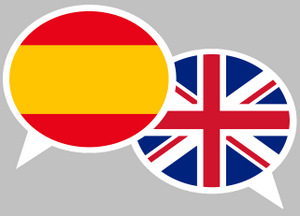 One of the most common questions from Spanish students is, “How can I perfect my Spanish accent?” Like many language learning questions, this one doesn’t have a simple answer.
One of the most common questions from Spanish students is, “How can I perfect my Spanish accent?” Like many language learning questions, this one doesn’t have a simple answer.
First of all, unless you started learning at a very young age, it’s very unlikely that you will ever have a perfect Spanish accent. That said, you can certainly improve your accent, and the first step, or rather series of steps, is obviously to learn how to pronounce all the different Spanish letters and letter combinations, which takes time. Next, you have to learn about the particularities of Spanish like diphthongs, enlaces, rhythm, and all that jazz.
To a certain extent, you can learn the above on your own, by reading lessons and using audio tools. You can hear the pronunciation of individual words in dictionaries or websites like
- Forvo (also includes many phrases)
- HowToPronounce
- Span¡shD!ct
- WordReference
For more detail, take a look at these video lessons:
- Blog de Lengua – Videos for individual sounds and letters, Spanish only
- Pratiquemos: B and V | C and Z | J and G | LL and Y
- All about “N” including how it changes depending on what letter it’s next to
It’s also essential to listen to Spanish as much as possible. It doesn’t matter whether it’s news, movies, cartoons, or podcasts, as long as it’s native Spanish speakers. Training your ear is a vital part of training your tongue.
The human touch
At some point, preferably sooner rather than later, but certainly once you’ve learned the rules, you have to interact with actual humans. Some sounds can be particularly tricky, depending on your native language, so it’s important to practice those sounds over and over until you can produce them without conscious thought. But first, you have to make sure that what you’re pronouncing is correct – otherwise, you might end up “perfecting” the wrong sound (see Don’t practice your mistakes), and getting feedback from a native speaker is absolutely the best way to do this. One helpful technique is to record a native speaker so that you can listen to the correct pronunciation as many times as you need to. It’s also useful to record yourself, as you may have a distorted idea of what you actually sound like.
In an ideal world, you’d work one-on-one with a specialist, whom you can find by googling something like Skype Spanish pronunciation, or contacting a Spanish school, such as the Instituto Cervantes, which has schools all over the world.
The bottom line
Like everything, improving your Spanish pronunciation takes dedication and motivation, and there’s a limit to how much you can do on your own. If you’re serious about improving your accent, you need to work with a tutor or at least take a class.